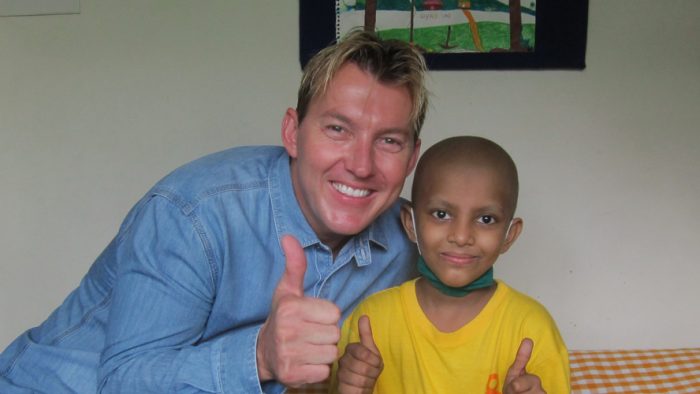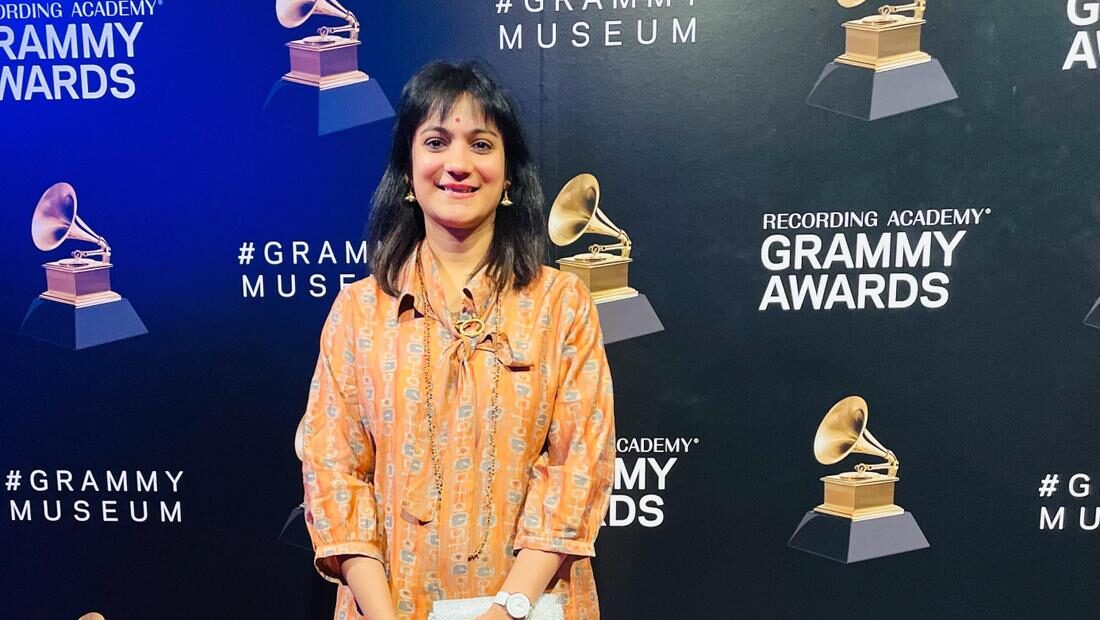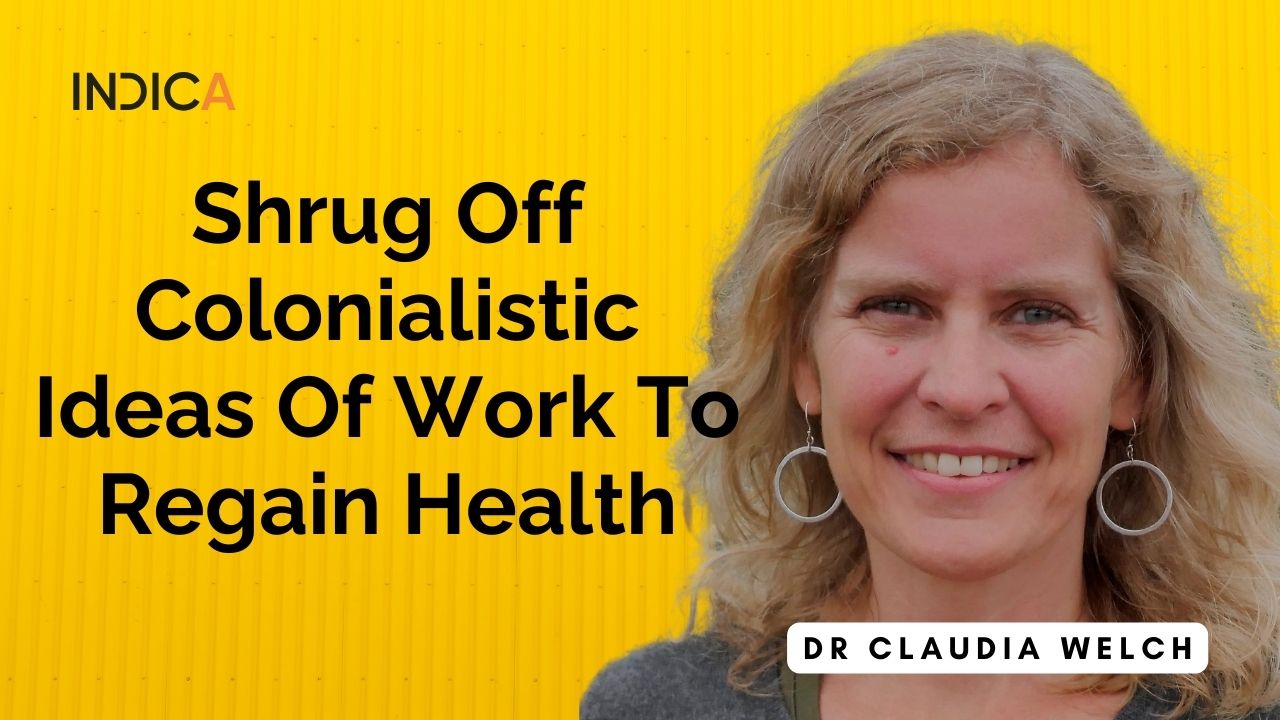Former Australian fast bowler Bret Lee is known to cricket lovers as one of the best pace bowlers in the last century, consistently bowling over 155 km/hr. After his retirement from cricket, he has launched Mewsic, which offers music therapy, to underprivileged children and those suffering from cancer. In an email interview, he speaks about music and children.

What does music mean to you both personally and in terms of its power to enhance the lives of children?
My
family and I grew up on music so it's a very important part of who I am. It's
been a part of my life since I was a little kid and definitely something that
brought my family together. For children, music can provide an opportunity to
express themselves while still teaching important lessons like the importance
of practice.
Please could you tell us about your music interests and skills?
A
lot of people say this but I really do love all types of music. Personally I
play the guitar and piano. I've been part of a band, which is a lot of fun
because it brings in the element of being in a team, like cricket.
Do you believe music can help children with disabilities and is this opinion based on research or is it your own experience with music?
I'm a firm believer that music can definitely help children with disabilities and other conditions, and there is a great deal of research out there that validates this belief. Our program with St Judes helps children who have been diagnosed with cancer manage anxiety, express themselves emotionally and has even been shown to reduce pain and there are many studies which show the medical benefits of using clinical music therapy on cancer patients.
How much time and mind space do you devote on your music therapy project?
I
try to devote as much time as possible. Whenever I am in India I make sure to
catch up with the amazing team that helps me put the program into action as
well as the beautiful children who are part of the programs. To be able to see
the difference that music has made in their lives is inspiring. And
in Australia I often speak at events to raise funds to support and create
awareness about our work in India.
How did your love for music translate into compassion Indian children?
I
knew from my visits to India throughout my cricket career that it was a country
that shared a lot of my passions. The love of cricket obviously, but also a
great musical culture. I decided that I wanted to try and use my profile as a
cricketer and love of music together to try and help children.
What kind of resources does one need for a project like this? How did you manage to garner funds and resources?
I guess that the main resources that we need on an ongoing basis are donations to keep our programs running. We need people to 'sponsor' the music tuition of our Mewsic Stars, and to help us fund our Music Therapy Program at St Judes.
But we are also looking for other help - donation of musical instruments so that we can give the joy of music to more children, and also opportunities for our Mewsic Stars to perform. We have formed a band with our students in Dharavi who have become very good and love to get on stage to a live audience and showcase their talents.
We
would also appeal to the music and Bollywood industries to provide opportunities
for our kids to have musical 'experiences' ie see a live studio recording, be
in the audience of a music TV Show, have a one off Masterclass session with a
famous musician.
What is more satisfying bowling a juicy yorker and getting Sachin bowled or cheering children up with one of your songs?
That's a very tough question! I think I would really want both because I couldn't pick between them.

Is it possible to have two personas - one aggressive on the field and the other empathetic and compassionate off it? Were you a different person on and off the field?
Yes
I think that's true to some extent. On the field you need to be a total
competitor and, especially as a fast bowler, being aggressive is often part of
that. But there is no reason to carry that on after the match. A lot of the
batsmen that I had my toughest battles with on the field were good friends of
mine once the match was over.
Mewsic helps kids with cancer
Mewsic was kick started by
former Australian fast bowler Brett Lee in India in 2011. The Mewsic Therapy
Programme was launched along with St Jude's India Childcare Centres in 2013
in an aim to use music therapy as a complimentary therapy to support children,
and their families, who are struggling with cancer.
Executive Director and Founder - Innovaid Advisory Services
and Chairperson - Udayan, Kolkata, Emily R Menon speaks about the potential, hurdles and great dedication
that music therapy entails. She helps run the Mewsic programme in Mumbai.
What is the
scope of your work? When was it started, how many centres are there now, how
many musicians involved, how many children and families impacted?
Mewsic was kick-started in India by Brett
Lee in 2011 and our initial focus was to establish Music Centres in slum
communities so that children could have the opportunity to learn music -
singing, dancing, keyboard, guitar and a variety of other instruments. It was a very successful program - helping
keep children out of mischief, exposing them to positive mentors and
introducing them to their first experience of learning music!
We launched our Mewsic Therapy program with St Jude's India Childcare Centres in 2013 when we trialed the program by placing an Australian Clinical Music Therapist at their Parel Centre for two months to provide music therapy to the 30 children and their families living there. The program was an instant success and the impact on the children was immediate. Staff noticed marked changes in the behavior of children - less angst and anger, improved compassion and interpersonal skills as they lived so closely together and better management of emotions.
Thanks to the support of Rotary, we were
able to place a fulltime Clinical Music Therapist at the centre for 12months
and began to monitor the impact of the sessions on the children.
There is a dearth of Clinical Music
Therapists around the world, and indeed, here in India, so it has been
difficult to get properly trained, accredited professionals to continue our
work. We have continued to use music as
a form of therapy by providing weekly music workshops and activities with the
35 children at St Jude's Parel Centre and it has become an integral part of the
weekly life of the centre - particularly as children undertake their music
therapy, away from school, friends and their homes. It is easy for them to get bored and feel
frustrated.
St Jude's has three centres in Mumbai (Parel, Kharghar and Cotton Green) and to date we have only been able to supply music therapy to children at the Parel Centre.
Sound Space currently provides weekly
music as therapy sessions to children in Parel and Kharghar, and we have just
launched Clinical Music Therapy to our children in Cotton Green.
We were fortunate to find an experienced
and skilled Indian Clinical Music Therapist, Astha Luthra, who we recently
employed to work full time at the new St Jude's Cotton Green Centre which will
be home to 150 children and their parents.
Astha provides both group and individual sessions to children on a
weekly basis who staff identify as dealing with particular pain or emotional
challenges. She also dedicates some time
to promote Music Therapy as a clinical form of complimentary therapy - talking
to doctors, the medical fraternity, students and the media to educate them on
the benefits of Music Therapy and how it actually works.
What is your
mission? Is there hope and evidence for clinical improvement or does it focus
on quality of life parameters?
Our mission is to use music therapy as a
complimentary therapy to support children, and their families, who are
struggling with cancer.
A growing number of studies suggest that music can aid healing in many ways. One recent scientific paper from Harvard University showed how music therapy helped stroke patients regain their speech, and other studies have found that music may improve heart and respiratory rates. It also helps to control blood pressure as well as anxiety and pain in cancer and leukaemia patients.
Additionally music
therapy is very good at helping patients manage pain, which is traditionally managed
through the administration of drugs. Research has shown that those who utilize
Music Therapy have a decrease in the amount of drugs administered, due to
higher tolerance and pain threshold ability.
Music Therapy is also found to play a key role
in helping patients bodies become more receptive to treatment (ie chemotherapy)
as it helps to relax patients, ease tension and fear – all of which have dramatic
physiological impacts on the body prior to treatment. Music is also key in stabilizing patients
both physically and emotionally in this regard which reduces the pressure on hospital and center staff and promotes
overall healing among patients.
What is the spectrum of health issues you have dealt with and with
which
At Mewsic we focus primarily on children
suffering from Cancer, however we have also invested, in the past, in the
establishment of a Music Therapy Academy, operated by The Music Therapy Trust
in Delhi, to train Indians in a Post Graduate Diploma in Clinical Music
Therapy. We believe that there is a need
for more Music Therapists in India who can use this powerful form of therapy to
help people suffering a range of health problems.
While no Indian musician would question the emotional
impact of music on listeners, few believe in its healing powers. Does your
experience prove otherwise?
Once again, Clinical Music Therapy is so much
more than just 'listening to music'. And
yes, very few people in India are aware of the healing benefits provided
through Clinical Music Therapy - which is what we practice at Mewsic and St
Judes. There are many musicians who
claim to do 'music therapy', however there is no regulatory body (as there is
in other countries) in India to regulate the delivery of the therapy.
Whilst there is often an initial
skepticism among some patients, parents, even doctors, once they read and learn
about the research studies and the results that have been achieved around the
world, they are convinced that there is something very scientific about the
therapy and the results it achieves.

In fact we have been approached by a
number of hospitals both within Mumbai and outside, to provide Clinical Music
Therapists to work among their patients.
However the dearth of qualified and certified music therapists in India
has meant we are unable to provide this service.
A 2007 survey of U.S. health facilities by the Society for the Arts in Healthcare,
along with the Joint
Commission and Americans for the Arts, found that of the 1,923 facilities,
35%
offered some type of music therapy to patients.
Similarly, today in Australia, almost every major children’s hospital in the country houses a Music
Therapy Department
which delivers a range of services to children to help them better handle treatment, pain, and the emotional trauma of hospitalization and their injury/disease.
This indicates the growing case for support for the inclusion of Music Therapy services and its positive impact on patients.
Are parents
and children in India open to music therapy as a viable option of treatment or
are they also skeptical?
Yes, once the benefits are
explained. Our primary target market is paediatric
cancer patients and in this context, it is a very powerful modality. Our patients are not only suffering from the
disease, but they are also suffering from the emotional impact of being away
from their homes (all our patients come from across India), their siblings,
their schools. Their parents are
struggling with the financial impacts as they are required to be in Mumbai with
their child and cannot earn a living. So
the integration of Music Therapy at our centres really helps them manage their
emotions and the variety of issues they are dealing with.
Are the doctors, psychologists and social workers on board with music
therapy?
There is a huge need for 'awareness
raising' on the issue of Clinical Music Therapy and our full time music
therapist, will be spending 1 day a week talking to doctors, nursing staff,
medical students, NGOs and journalists about the clinical research findings and
benefits of the use of Music Therapy.
Doctors at Tata Memorial Hospital have
been happy with the results of the music therapy on the St Jude's Child
Patients, however we have not had therapists work for long periods of time to
create any validated research of our own.
What kind of music activity constitutes therapy? Is it individual or group?
Also is there a preference for instrumental or vocal music?
- Music therapy sessions usually last between 30 to 45
minutes - The sessions are conducted in groups and individually.
- Depending on a patient‘s situation, they may have regular
therapy for weeks or months - The music therapist will make a 'treatment plan' related to 'referral aims' or goals, for the patient
- The Music Therapist and patient will use instruments and
voice in sessions to improvise music that will support the referral aims and achievement of goals. - The Music therapist uses
psychological and psychodynamic knowledge to explore the needs of the patient
and to develop a therapeutic relationship - Patients do not need to be able to play an instrument to be
referred to Music Therapy
Does your project involving teaching music too? If yes how is the
course structured?
As outlined in the first question, yes, we have been teaching music to children in Dharavi, Govandi, Mankurd, Hyderabad, Lucknow and Jaipur. Today we provide scholarships to talented, disadvantaged students, to study music (we support any instrument, but currently have scholarships supporting guitar and keyboard). We hope to grow and expand this program and anyone who would like to sponsor a child for 12 months of music lessons is encouraged to reach out to us.





